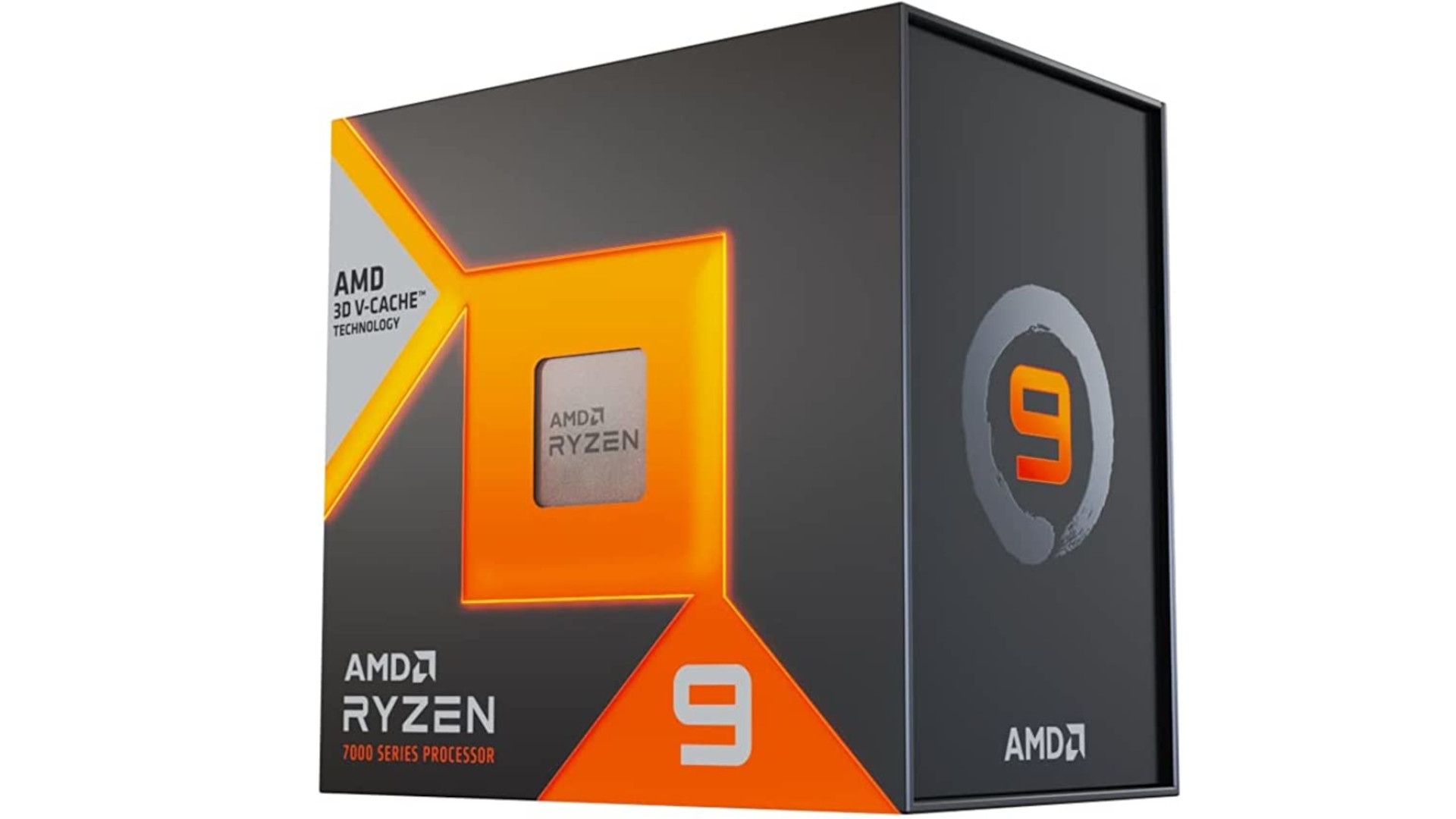We have reviewed AMD’s highly anticipated Ryzen 9 7950X3D CPU family, which has now been released. The top-tier Ryzen processor has 16 cores, 32 threads, and 64 MB of 3D V-Cache. The X3D series was specifically created to bridge the gap between Raptor Lake CPUs from AMD and Intel.
Gaming workloads will likely benefit from the additional cache on the 7950X3D. Three new Ryzen 7000 X3D models, which will provide a great balance of single-threaded and multi-threaded performance and improved game performance, were unveiled by AMD at CES 2023.
These new processors have the manufacturer’s unique 3D V-Cache placed on top of a CPU chiplet and the cache present in the Ryzen 7000 CPUs, and they have a bigger L3 cache capacity of +64MB. 8, 12, and 16 cores will be present in the three new Ryzen 7000 X3D versions.
The Ryzen 7000 X3D components benefit even more from 3D V-Cache because to the higher bandwidth, which will improve performance in games and certain creation tasks and apps, even though the Ryzen 7 5800X3D is still a top-tier choice for gamers.
Today’s review is on the newest generation AMD Ryzen 9 7950X3D. 16 Zen 4 cores (8C/16T per CCD) are available on each of the two CCDs in the 7950X3D. The additional L3 cache had to be stacked onto one of the CCDs, forcing AMD to create a new heterogeneous CPU architecture.
However, they do have some special sauce as a garnish to make it work. In our test suite, we’ll see how the AMD Ryzen 9 7950X3D compares to previous Ryzen 7000 processors and Intel’s 13th generation to see if it’s the chip gamers have been waiting for.
AMD Ryzen 9 7950X3D Specifications
The $699 AMD Ryzen 9 7950X3D is designed primarily for gamers who want to run CPU-limited games quickly while still having the threading power of 16 cores to perform the toughest productivity jobs. With sixteen Zen 4 cores and the second-generation 3D V-Cache technology from the manufacturer, which unlocks 128MB of L3 cache, the new chip offers the fastest gaming performance currently on the market.
The 7950X3D tops our list of the best CPUs for gaming, outperforming Intel’s fastest processor, the 6 GHz Core i9-13900KS, by an average of 13% and up to 40%+ in some titles.
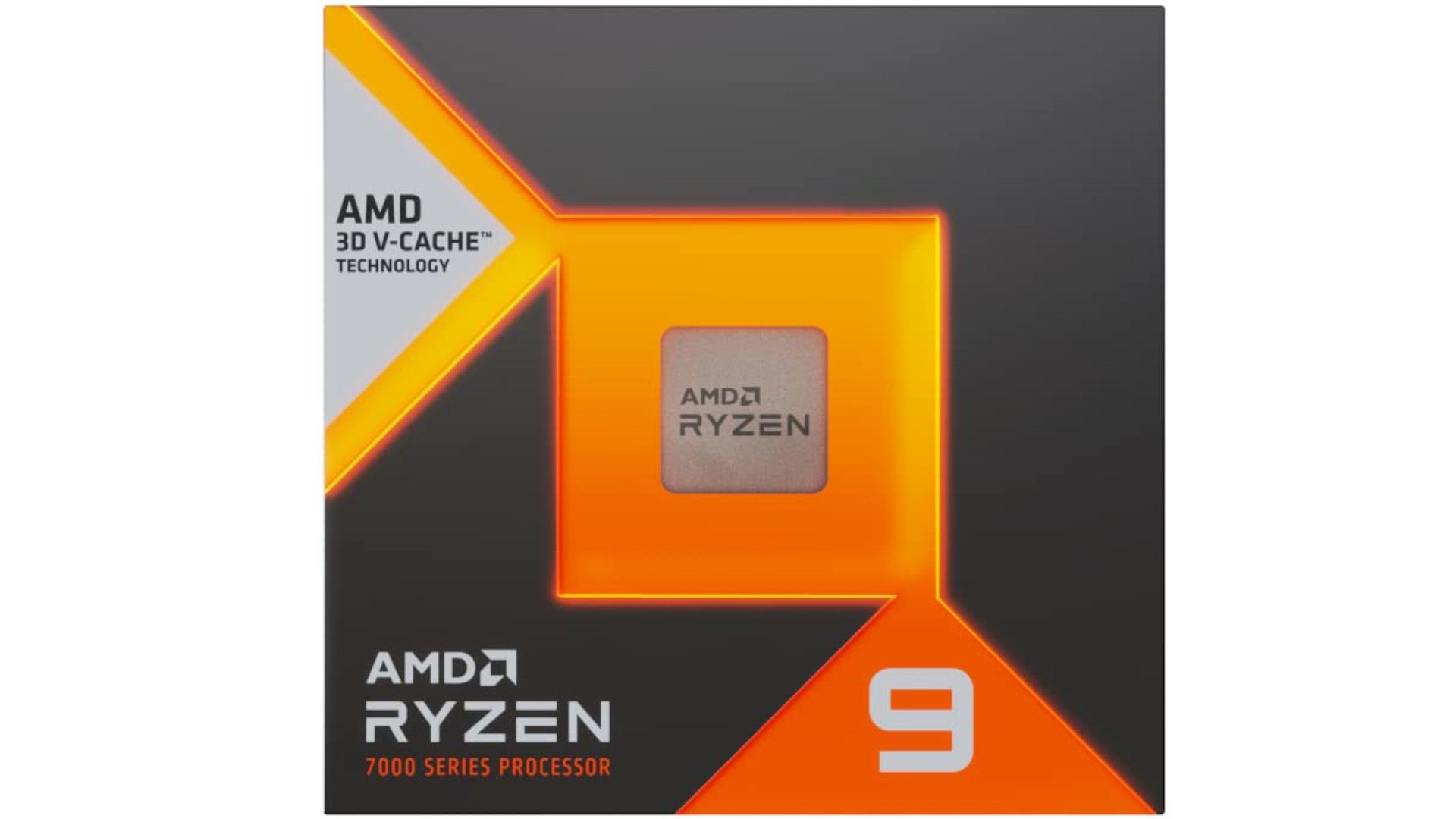
The AMD Ryzen 9 7950X3D has an astounding 128MB of L3 cache thanks to AMD’s cutting-edge 3D chip-stacking technology, known as 3D V-Cache. Similar to AMD’s first X3D processor, the Zen 3 Ryzen 7 5800X3D, the additional L3 cache is provided via a 3D-stacked SRAM chiplet that is hybrid-bonded on top of the CPU, accelerating gameplay in many titles to new levels.
In order to distribute the improvements more evenly across a wide variety of games, AMD has also developed a new thread-targeting method.
The first-generation 3D V-Cache chip provided AMD an advantage over Intel’s rival CPUs, solidifying AMD’s position as the preferred processor for gamers. However, due to its eight-core cap and relatively low boost frequency, the chip struggled in several productivity applications.
The first 3D V-Cache chip to use two compute chiplets is AMD’s new 16-core AMD Ryzen 9 7950X3D, which boosts productivity programs and enables a higher boost frequency of 5.7 GHz, a significant increase over the previous-gen’s 4.5 GHz peak.
The Ryzen 9 7950X3D has 16 Zen 4 CPU cores and a TDP rating of 120 W, which is around 50 W less than the Ryzen 9 7950X. These are the key features of the processor. AMD claims that the more pertinent Package Power Tracking (PPT) rating, which places the socket power output at up to 162 W, is 1.35x the TDP.
The AMD Ryzen 9 7950X3D and Ryzen 9 7950X have the same 5.7 GHz turbo clock, however AMD has reduced the base frequency on the 7950X3D by 300 MHz, making it 4.2 GHz. The Ryzen 7000 family’s memory support is identical from previous generations; JEDEC-compliant speeds are capped at DDR5-5200 while overclocking (with AMD EXPO, for example) allows for rates as high as DDR5-6000.
AMD Ryzen 9 7950X3D General Information
| Regional Availability | Global |
| Product Line | AMD Ryzen™ 9 Processors |
| Max. Boost Clock | Up to 5.7GHz |
| L2 Cache | 16MB |
| Processor Technology for CPU Cores | TSMC 5nm FinFET |
| Thermal Solution (PIB) | Not included |
| Launch Date | 2/28/2023 |
| Platform | Desktop |
| # of CPU Cores | 16 |
| Base Clock | 4.2GHz |
| L3 Cache | 128MB |
| Unlocked for Overclocking | Yes |
| Product Family | AMD Ryzen™ Processors |
| # of Threads | 32 |
| L1 Cache | 1MB |
| Default TDP | 120W |
| CPU Socket | AM5 |
| Max. Operating Temperature (Tjmax) | 89°C |
AMD Ryzen 9 7950X3D Benchmarks & Tests
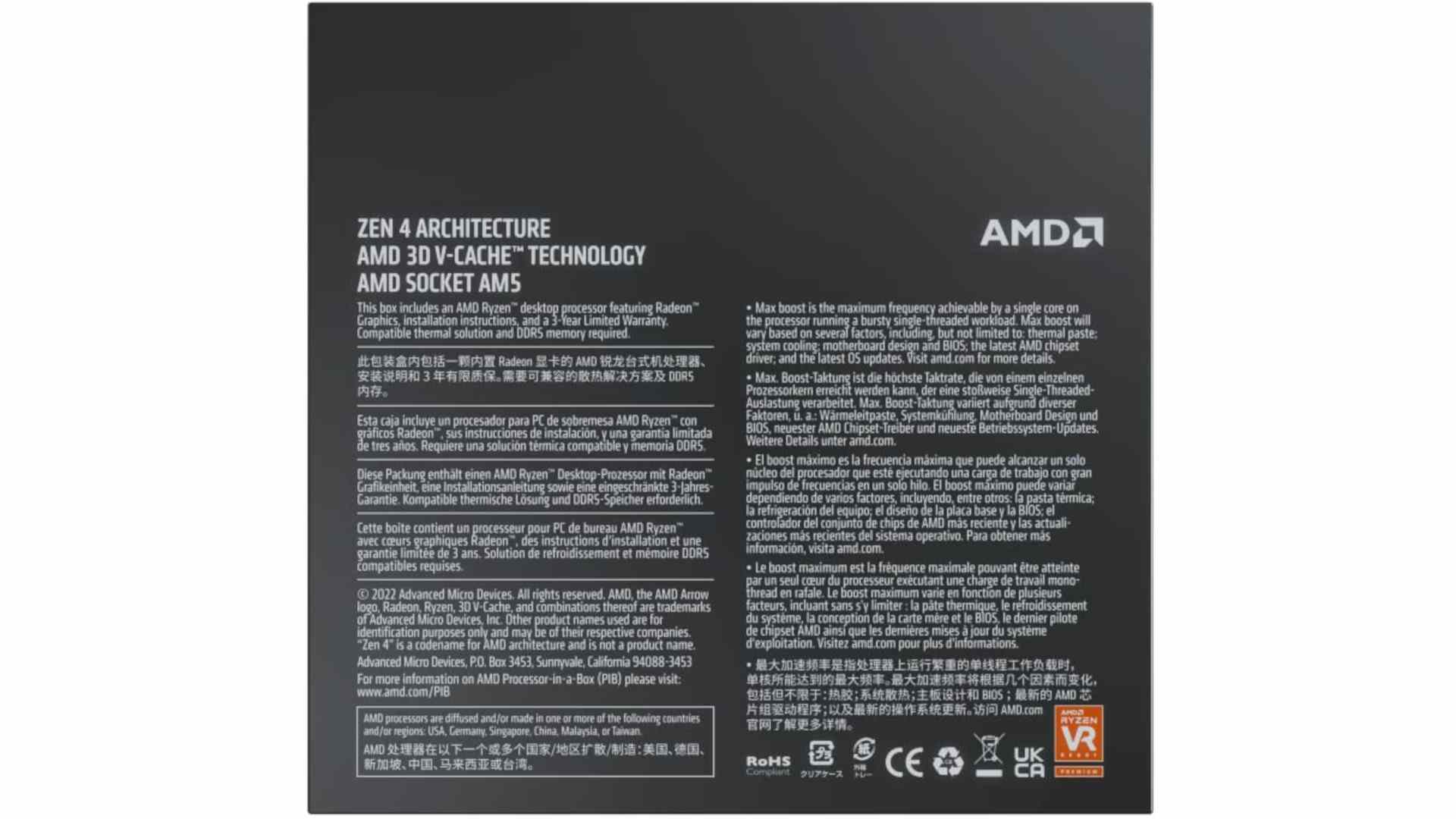
To get a sense of the available bandwidth for the CPU cores, we begin testing using AIDA64’s memory and cache bandwidth test. Here, the 13th Generation Intel (“Raptor Lake”) processors have a significant advantage over AMD chips, which can only support DDR5 at 5,200 MHz. However, it is noteworthy that the DDR5 4,800 MHz-capable Intel 12th Generation (“Alder Lake”) CPUs also have a higher bandwidth between the processor and RAM.
More variables come into play with cache bandwidth. Intel is somewhat ahead in terms of L1 cache performance, but is significantly behind in terms of L2 bandwidth. L3 bandwidth is once more inconsistent, although the Ryzen 9 7950X from AMD is undoubtedly better overall than the AMD Ryzen 9 7950X3D. However, the amount of cache is not considered in this test, which under the right circumstances can be very helpful.
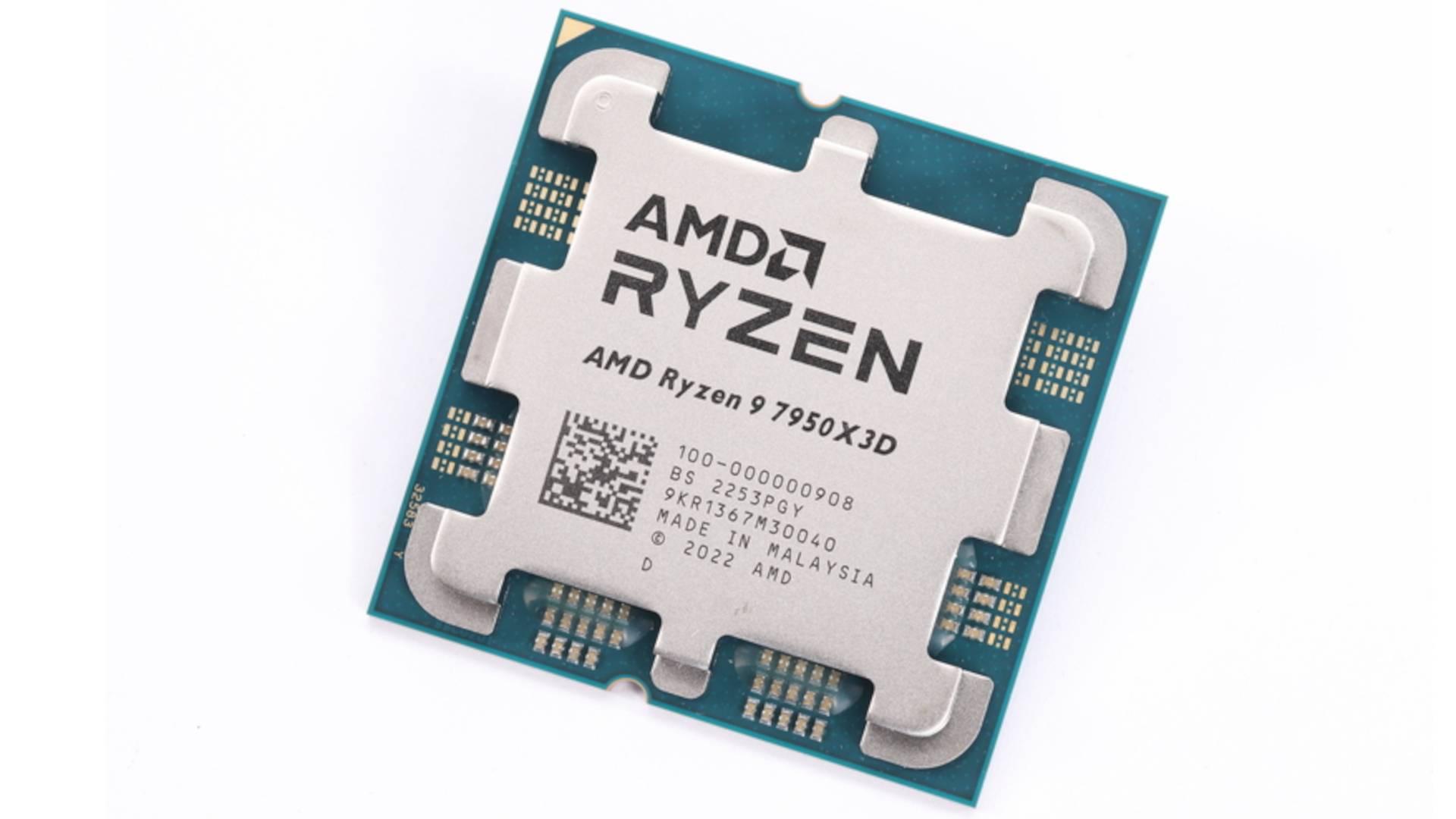
However, the cache is not very useful in most CPU tests, and this is what gives the AMD Ryzen 9 7950X3D its worst impression. The AMD Ryzen 9 7950X3D beats the Ryzen 9 7950X in every single one of our CPU tests, with the exception of one. That test, the single-threaded POV-Ray 3.7 test, is within the range of error, it must be said.
In none of the other CPU tests in our suite does the Ryzen 9 7950X3D’s cache clearly provide a performance advantage. The AMD Ryzen 9 7950X3D operates a little slower and performs worse in practically every test save that one due to its lower TDP and heat limit. In several of these tests, the Ryzen 9 7950X is somewhat quicker, but given how much less expensive that chip is at list price, it’s a bit obvious which is the better deal in this case.
The Ryzen 9 7950X3D is therefore not especially competitive versus any of Intel’s rival CPUs, to put it briefly. The Core i9-13900K is just faster and more affordable in practically every test.
AMD Ryzen 9 7950X3D Conclusion
None of this implies, however, that AMD Ryzen 9 7950X3D is a subpar processor. The ideal cost is everything. It would be well worth taking into consideration if it were offered for about the same street price as the Ryzen 9 7950X, for instance.
In most situations, there isn’t much of a difference in speed, and the extra cache may be useful in the future in a scenario we didn’t test for or in a particular collection of games you happen to enjoy. However, at its launch price of $699, we’d recommend the faster Intel Core i9-13900K or the AMD Ryzen 9 7950X3D instead.
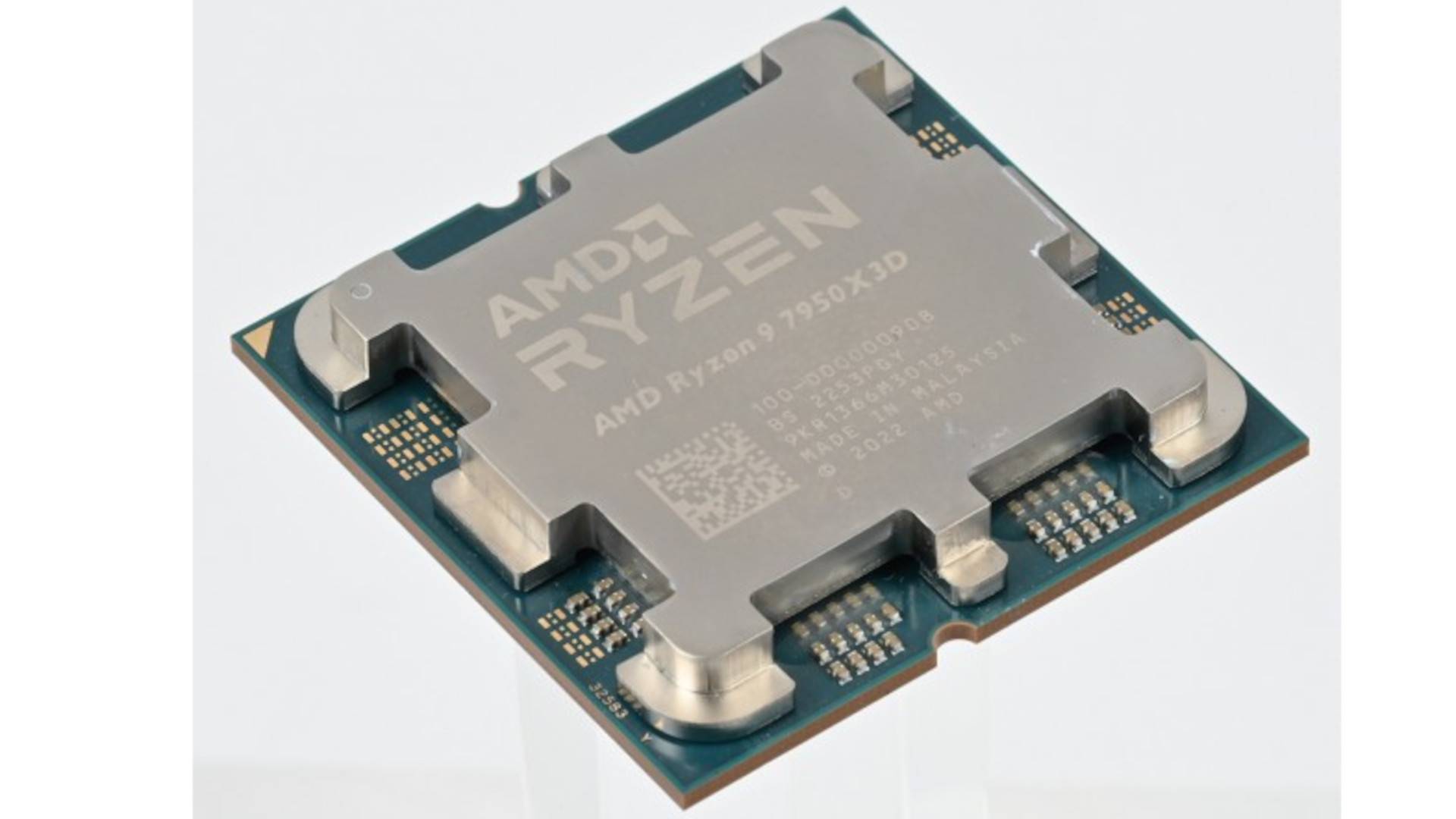
AMD Ryzen 9 7950X3D
-
Performance - 95%95%
-
Price - 95%95%
-
Value - 95%95%

